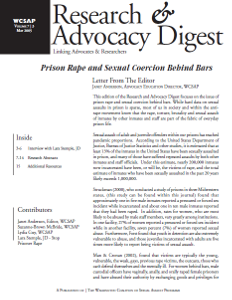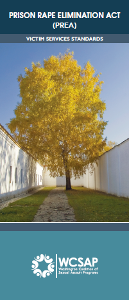The intent of this presentation is to provide a starting place or a template for your program when responding to requests, typically from corrections agencies, for presentations for staff or incarcerated people about advocacy services. The concept of advocacy may be a new one for corrections staff and for incarcerated people. We have included the key points and best practice approaches to discussing the topic and expect you may customize some aspects of the slides to meet your community’s…
- Prevention
- Working With Survivors
- Accreditation
- Advocacy Areas
- Culturally Specific
- Legal Resources
- Management
- Medical Resources
- SA Protection Order
- Subpoenas
- Support Groups
- Tech Safety
- Resources
- Policy
- Training

